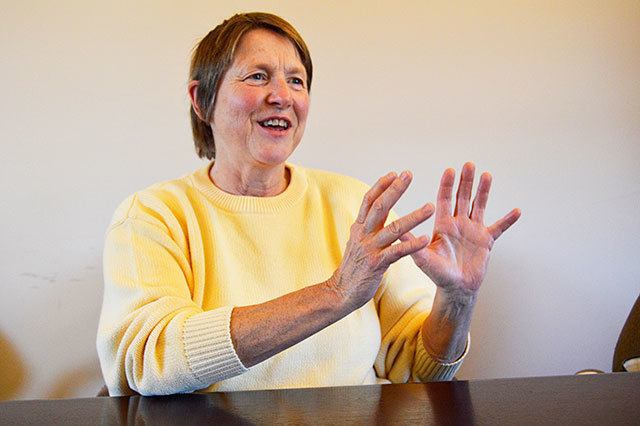The race for one of the District 10 state House of Representatives seat has been a civil but engaging contest focused on the issues facing Washington state.
Incumbent Dave Hayes, R-Camano, is at the end of his second term in office and is being challenged by Mount Vernon Democrat Doris Brevoort. The district covers Island County and parts of Skagit and Snohomish counties.
The two candidates’ professional lives and life experiences seem to largely inform their views on issues.
Hayes is a Navy veteran and currently a sergeant in the Snohomish County Sheriff’s Office, where he has worked for 26 years. He went to Everett Community College. He and his wife are parents and grandparents. They are active with youth in their community and served youth missions to New Orleans and Mexico.
Hayes believes in limited government.
“In most cases, government just needs to get out of the way,” he said.
Brevoort was an educator for 25 years in Seattle public schools as a counselor and special education teacher before she retired. She is self-employed as a licensed massage practitioner. She has a master’s degree in education from the University of Washington and a PhD in human science from Saybrook University.
And she plays the accordion.
Brevoort said she has a sister with a lifelong history of mental illness and understands the roadblocks in the system, which both candidates agree has major problems. She said the state’s tax system is the most regressive in the nation, is filled with corporate loopholes and needs to be reformed.
“It’s something a grown-up state needs to do,” she said.
Both candidates agree that fully funding education, as the state Supreme Court ordered in the McCleary decision, is the biggest issue facing lawmakers. The state needs to find billions more dollars to fulfill the promise.
Hayes said the solution is simple. Lawmakers need to fully fund education and other top priorities first, then any leftover dollars can go to other programs.
“We have the money. Don’t let anyone say we don’t,” he said. “It comes down to prioritizing.”
The solution would mean billions of dollars of cuts to some programs, but Hayes wouldn’t point to anything specific that he views as low-priority and cuttable.
He did say, however, that the Department of Social and Health Services is a “black hole” when it comes to money. The giant agency covers services for seniors, the mentally ill, children, people with developmental disabilities, low-income families and other programs for the vulnerable.
Brevoort argues that tax reform is the solution. As opposed to Hayes, she supports a graduated capital gains tax and the closure of corporate tax loopholes. She said she would have supported a bipartisan bill to end school districts’ dependency on local taxes; Hayes voted against it.
She argues that the state is going to have to take a hard look at trading regressive sales taxes for a stable income tax sometime in the future.
The candidates agree that the dearth of affordable housing on Whidbey Island and beyond is a critical problem.
The solution, Hayes said, is for the state to knock it off with all the land-use regulations and allow more local control in land-use decisions. He said the regulations currently in place have increased the cost of land and development.
Brevoort said she was involved in an “urban village” program in Seattle and she believes smart design that allows more density — without foregoing quality of life — could be key. The state could encourage such intelligent design with things like block grants and policies.
“An overall housing development plan in state is needed,” she said.
The two candidates have different views on gun control.
Hayes sponsored a bill that tightens the state’s firearm offender registry law. The measure expands earlier legislation that created a central firearm offender registry, but gave judges discretion of whether convicted felony firearm offenders would have to register. He found that judges required registering in only 86 of 1,200 cases in three years. Hayes’ bill makes registry automatic for anyone convicted of a felony firearm offense in a crime involving a child, sexual motivation or a serious violent offense.
The bill was supported by the NRA.
Hayes said he’s against the state Attorney General’s proposed ban on assault weapons and high-capacity magazines.
“It’s not something that’s going to solve the problem,” he said.
Brevoort said she doesn’t support outlawing guns altogether, but she’s in favor of limits on assault rifles and believes in licensing gun owners.



